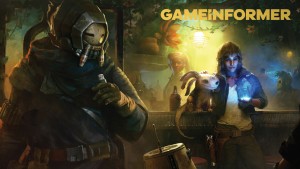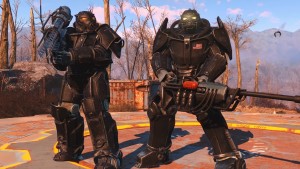Please support Game Informer. Print magazine subscriptions are less than $2 per issue
This Generation’s Ups And Downs
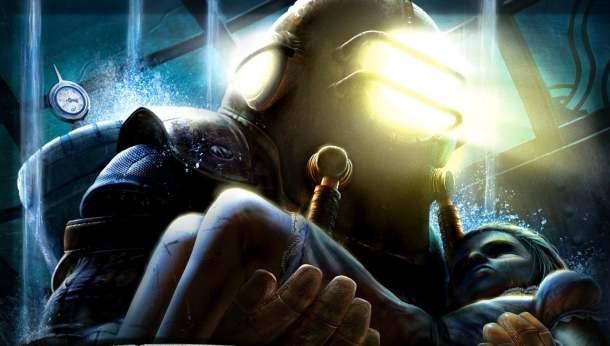
No matter how much technology evolves, video game development will always be filled with uncertainty. During the long process from concept to final product, an idea for a video game may grow into a title that revolutionizes the industry, or devolve into an utter mess. How has this generation of hardware fared? Here's a list of the most pleasant surprises and biggest disappointments we've seen so far. Let's start with the bad news.
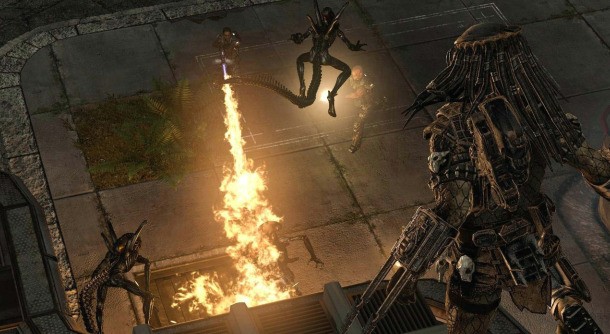
Down #10: Aliens vs. Predator
The AVP franchise takes two of the most *** alien series in science fiction and
mixes them together - how could you go wrong? While the movie franchise managed
to answer that question in myriad ways, the AVP video game series was
solid...until the most
recent release. Archaic level design, dumb AI, and some boring game
mechanics made playing through the game's three separate campaigns more of a
chore than a good time. The multiplayer was better, but as a whole AVP left us
wanting more from such an epic matchup.
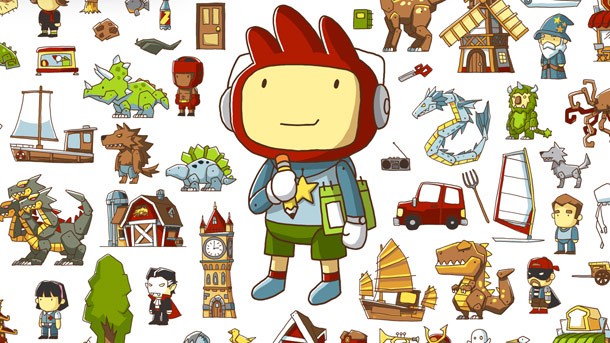
Up #10: Scribblenauts
The Nintendo DS has seen some creative titles over the years, but this
ambitious title from a relatively unknown developer sounded too good to be true
from the beginning. Although the final product has some serious control
problems, Scribblenauts largely
delivers on its promise: Your solutions to the game's countless puzzles are
limited only by your imagination (or in this case, your vocabulary). We'll be
flipping through our thesaurus to prepare for the release of the sequel, which
promises to fix some of the original title's shortcomings. However, the
original Scribblenauts proved that in an age where shooters reign supreme, your
most powerful muscle is still the one between your ears.
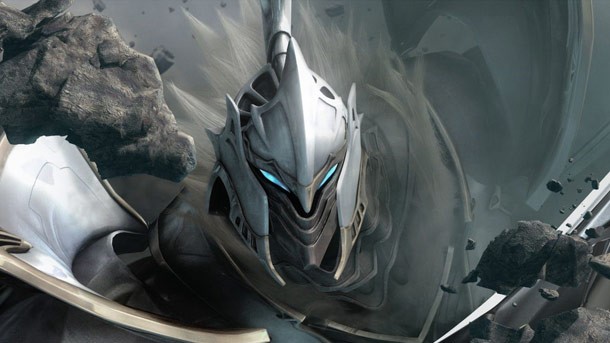
Down #9: White Knight Chronicles
Level-5 made a name for itself by creating excellent Japanese role-playing
games for the PS2, so when the company showed off the first trailer for White
Knight Chronicles, gamers got excited. Not only would it be Level-5's first PS3
game, but without a Final Fantasy for the new hardware, White Knight Chronicles
was one of the few titles to have RPG fans considering Sony's new platform.
After the initial announcement however, updates on White Knight Chronicles came
slow, and what we heard didn't sound good: Level-5 was moving away from what it
did best to incorporate an MMO feel, despite a measly four-player limit. After
a lengthy delay, White Knight Chronicles released to mixed
reviews, but given the title's place in the PS3's history, we're still
bummed out by what could have been.
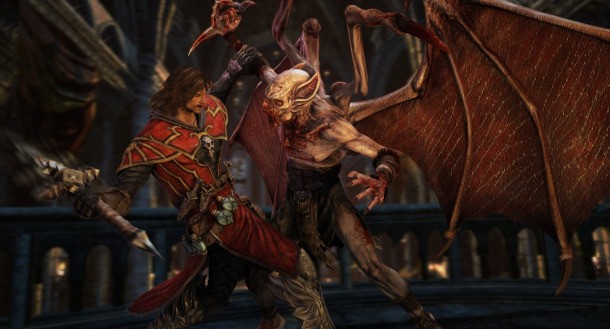
Up #9: Castlevania: Lords Of Shadow
The Castlevania series has had solid 2D titles on pretty much every
platform released in the past 25 years, but whenever Konami has flirted with
the third dimension, the series has suffered. With Lords of Shadow, the
Japanese developer found a
winning combination for a 3D Castlevania, by mixing the series' signature
style with proven mechanics from other triple-A action titles. Some have
criticized Lords of Shadow as being too much like other action games, but we're
just happy to finally have a 3D Castlevania that's fun to play.
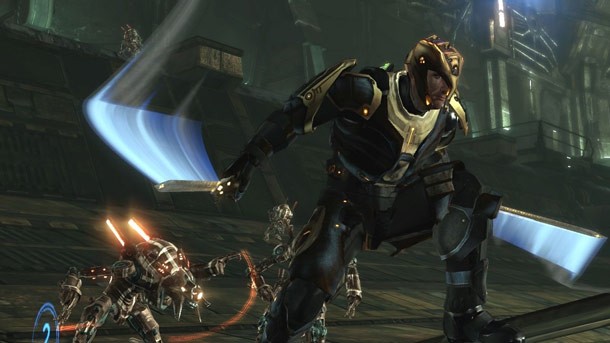
Down #8: Too Human
Originally planned as a PlayStation One title, Too Human suffered from over a
decade of hype inflating expectations before it finally released. Gamers had
every right to expect good things from Too Human: Developer Silicon Knights
impressed gamers with Eternal Darkness, and the title's mix of science fiction
and Norse mythology was tantalizingly original. Even with the extended
development time, however, Too Human just didn't
come together. The story and characters were laughably bad, and the
unbalanced gameplay and broken targeting system (not to mention the
inexplicably long death scenes) left players frustrated. Like many of the
titles on this list, Too Human's biggest disappointment comes in the form of
wasted potential.
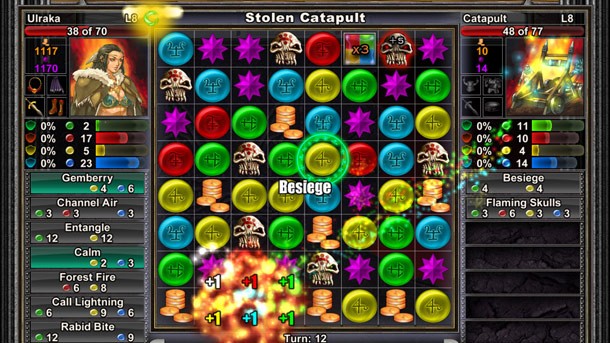
Up #8: Puzzle Quest
Little did we know that mixing an RPG with a tile-matching puzzle
game would prove to be the gaming equivalent of crack. By adding an engaging
meta-game to Bejeweled's proven formula, Puzzle Quest allows players to sink
countless hours into the game without feeling like they're doing the same thing
over and over again. Puzzle Quest's gameplay delivers finely tuned chaos that
the player always has just enough control over to remain enjoyable. The RPG
elements strike a chord similar to the recent sensation Minecraft has caused,
by constantly providing new goals to achieve and avenues to explore. Although
the sequel stumbled
a bit in the later hours, it couldn't tarnish our love for the series.
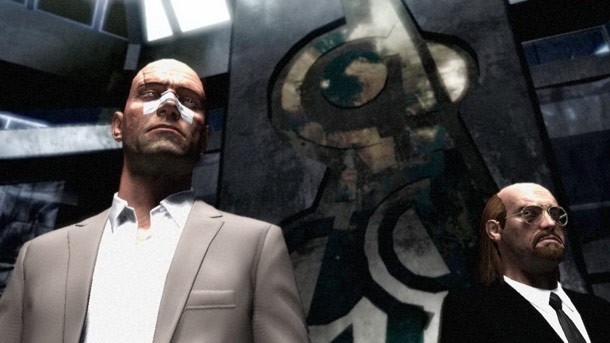
Down #7: Kane & Lynch: Dead Men
Sometimes a smart premise can overcome a game's flaws. Sometimes it
can't. Kane & Lynch was primed to break out of the third-person action
title mold by adopting a grittier tone and featuring co-op that's integrated
into the story. Best of all, Kane & Lynch was a game about robbing banks, a
concept that developers have somehow never taken advantage of (we'd still love
to see a current gen game based on planning and pulling off heists). But
unforgivably stupid AI and a plot
riddled with holes left Kane & Lynch well short of its potential. The only
thing more disappointing than Kane & Lynch's shortcomings is the fact that
the sequel made all
the same mistakes, and more.
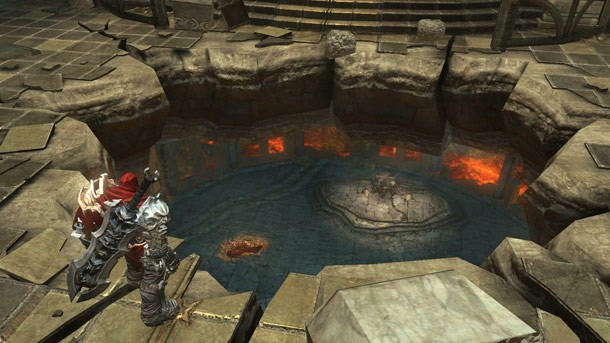
Up #7: Darksiders
Even the biggest fans of Darksiders won't bother to deny that the
game shamelessly apes Zelda, God of War, and even Portal. But thanks to the
expertise in which these different elements are employed and mixed together,
Darksiders attains a level
of greatness most copycats can only dream of. The plot is underwhelming,
and some of the objectives are needlessly repetitive, but the unending string
of devilishly clever puzzles that take advantage of your various powerups makes
Darksiders a must play for fans of the franchises that inspired it.
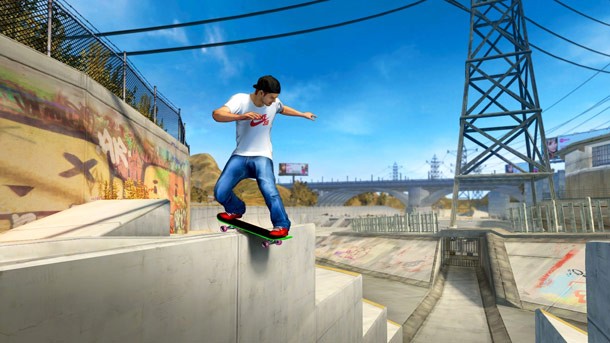
Down #6: Tony Hawk Ride
The reason for the Tony Hawk franchise's tailspin toward bargain
bin status has a lot to do with EA Black Box's Skate series (which we'll get to
in a second), but Activision can't blame Tony Hawk: Ride's colossal failure on
the competition. The publisher hinged the series' future on an unreasonably
expensive skateboard peripheral in hopes it would deliver a more realistic
experience. The result was an unmitigated
disaster. Even if gamers were willing to teeter on a wheel-less board in
their living rooms like idiots, the peripheral's recognition was sketchy at
best, and the unconventional gameplay was neither indicative of the actual
sport, nor fun. It's not all bad news, though: Some editors here at GI still use
the board as a foot rest. So the game has that going for it.
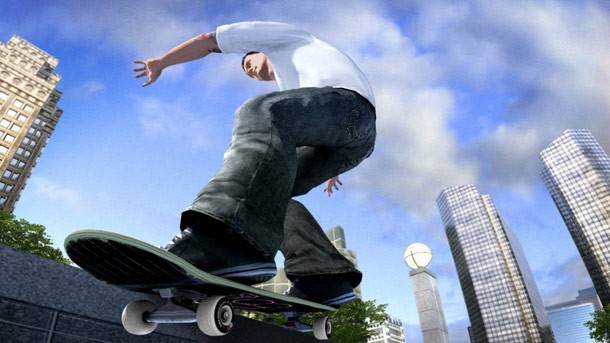
Up #6: Skate
When the original Skate released in 2007, few gamers thought it could stand up
to the monumental Tony Hawk franchise, which had enjoyed a run of eight
critically-acclaimed installments by 2006. However, Skate's intuitive control
system and more realistic take on skateboarding offered a fresh new take on the
genre, and gamers ate it up. Skate sold almost twice as many copies as
Neversoft's 2007 contender, Tony Hawk's Proving Ground. The franchise's two subsequent
sequels
have solidified its position as the king of skateboarding, thanks to more
robust online multiplayer options, a comprehensive park editor, and the fact
that the Tony Hawk series has pretty much imploded.
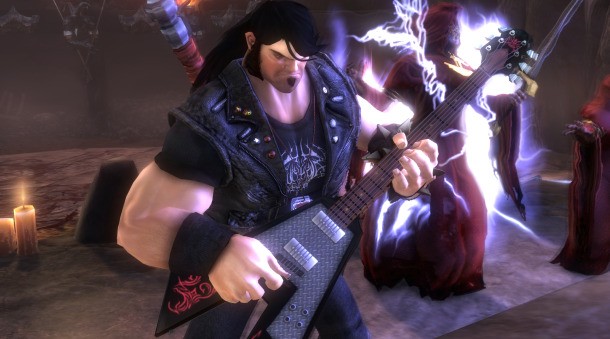
Down #5: Brutal Legend
Brutal Legend holds a special spot on our list of disappointments.
Despite some unpolished gameplay and irritating design decisions, Brutal Legend
largely lived
up to our expectations. The game is teeming with Tim Schafer's signature
sense of humor, the art direction is one of a kind, and the epic soundtrack will
transform heavy metal fans into giddy schoolgirls. What's disappointing about
Brutal Legend, is that it failed to find the audience that such a unique and
creative title deserves. If you're the kind of gamer who thinks that sales
figures aren't nearly as important as artistic vision, we agree with you. Too
bad EA doesn't: This summer Schafer announced that the publisher canceled the
sequel to Brutal Legend, and that his company will be sticking to smaller
downloadable games instead.
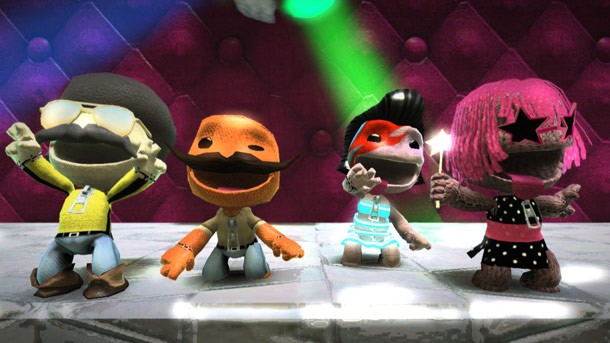
Up #5: LittleBigPlanet
In the past, developers have attempted to give console gamers the
ability to create new content for their video games via rudimentary level
editors, but failed to see much return on the investment. When an unknown
developer by the name of Media Molecule proposed to create a game based on the
concept of sharing user-made content, Sony must have known how big of a risk it
would be. Could an editor on a console be comprehensive enough to create
worthwhile content? Would it be easy enough to use? Would players be willing to
learn how to use the level creator? Could amateurs even make a level worth
playing? LittleBigPlanet proved that the answer to all of the above questions
is a
resounding yes. With more than two million user-made levels available for
download, LittleBigPlanet has not only redefined the platforming genre, but
given players a new way consume and create interactive entertainment.
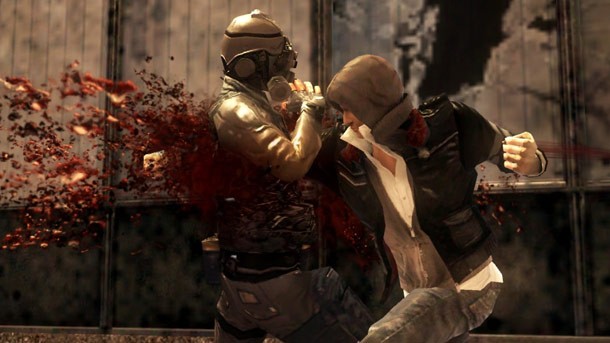
Down #4: Prototype
Two superhero sandbox games promised to fulfill our childhood
fantasies last year: Prototype and Infamous. Prototype released just two weeks
after Sucker Punch's superb action title, and failed
to escape the PS3-exclusive's shadow. Bad timing wasn't Prototype's only
problem: Stupid enemy AI, a few frustrating gameplay mechanics, and a throwaway
story are reasons Prototype has largely been forgotten, while Infamous fans are
now looking forward to a high profile sequel.
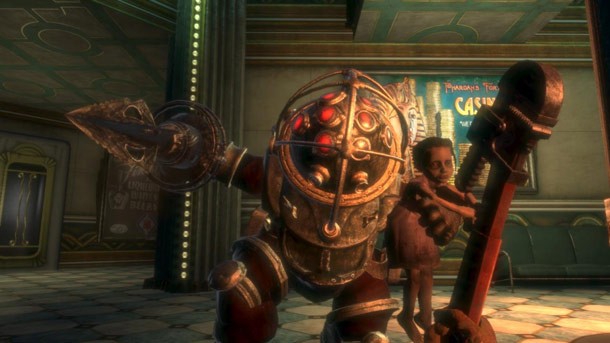
Up #4: BioShock
We were expecting BioShock to be a great a game ever since our initial cover
story back in 2006. What we couldn't anticipate was the impact it would have on
the FPS landscape. BioShock delivered one of the most immersive and wholly
unique atmospheres we've ever seen in a video game, while still providing top
notch gunplay, solid RPG-lite elements, and a twisting storyline we won't
forget anytime soon. We can't think of a better title for other shooters to
crib from, and games like Singularity have already provided similarly
entertaining adventures in the same vein.
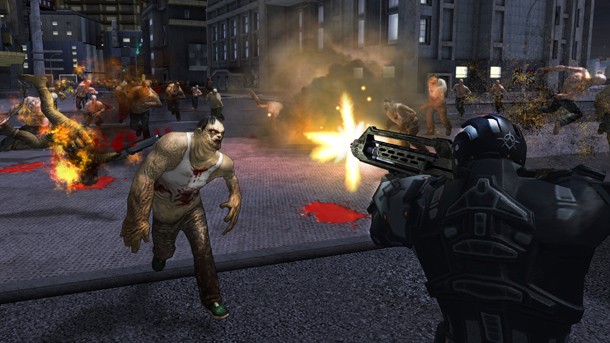
Down #3: Crackdown 2
The original Crackdown was an open-world third-person shooter that managed to
differentiate itself from other GTA clones by powering up your character with
comic book-like strength. It was an early success story for Microsoft, which
made fans hopeful that the company would back the series and allow its new
developer, Ruffian Games, to blow the doors off the sequel. Instead, Crackdown
2 featured a number of confounding design decisions. The game takes place in
the original title's Pacific City, only because of a new mutant outbreak, the
city is more run down (i.e. crappier) than before. The new enemy type is even
stupider than the first game's gang members, and for some reason Ruffian
reduced the mission variety to just two basic mission types - defend or attack
a base. Crackdown 2 also failed to fix any of the first game's flaws, while
simultaneously adding new problems, making it significantly less
fun than the original.
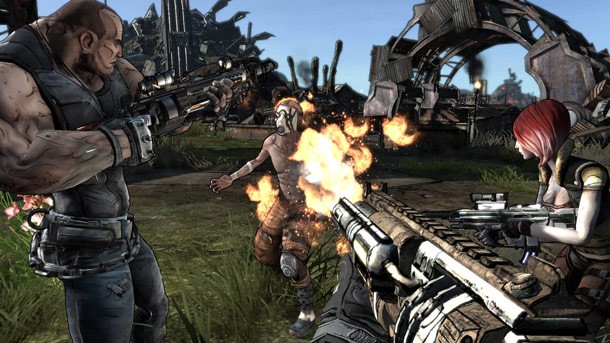
Up #3: Borderlands
While some games appear destined for greatness from the first moment
you see them, Borderlands faced an uphill struggle. Sure, we dug the promise of
an impossibly large arsenal and Diablo-like loot drops around every corner, but
the original art style for Borderlands looked like every other post-apocalyptic
action title on the market, and Gearbox didn't have the brand recognition of
other developers with more experience in the FPG genre. The news of a drastic,
last minute change in art direction didn't inspire confidence, but it was the
best decision Gearbox could have made. The new style gave Borderlands the edge
it needed to pique the interest of gamers, and the title's spot-on controls,
large open world, and insanely addictive formula did
the rest. Borderlands went from a question mark to a sleeper hit, to the
best selling new IP of 2009. Since its release, fans of the new series have had
four
quality
DLC
releases
to play, giving them ample reason to return to Pandora in search of more
treasure.
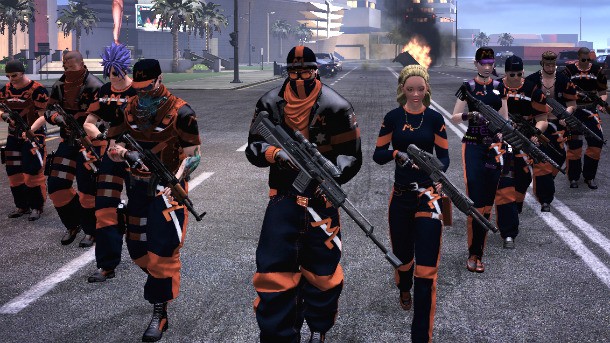
Down #2: APB
Realtime Worlds has every right to be upset with how Microsoft handled its Crackdown
IP, but the studio's new project fared
far worse. Someday a developer will figure out a formula for an MMO shooter
that will revolutionize the open-world genre, but APB proved we're not there
yet. Despite some great character customization options, APB's dull mission
types and sketchy gameplay mechanics failed to click with gamers. Perhaps the
biggest hurdle was its pricing structure, which required players to pay full
price for the game, then shell out extra cash by the hour or month. With
shooting and driving mechanics that were less fun than GTA IV, why would
someone pay twice to play APB? The developers failed to find a compelling
enough answer before the servers were shut off, just 80 days after the game
launched.
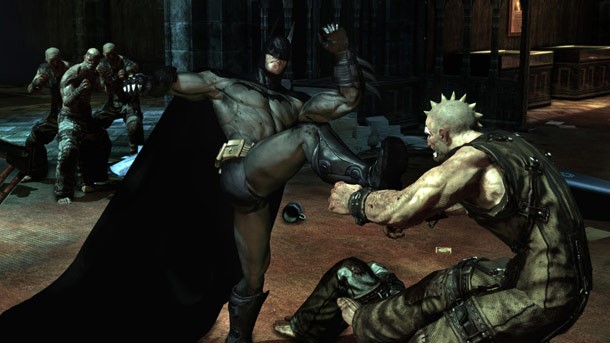
Up #2 Batman: Arkham Asylum
Fans of the Caped Crusader have become accustomed to disappointment
in the video game realm. Developers always manage to bungle translating
Batman's badassery into a form that's fun to play. Arkham Asylum certainly
showed potential when it graced our cover in 2008, but years of experience had
left us guarded. Luckily, Rocksteady Studios lived up to its name, and
delivered not just the greatest
Batman game of all time, but a solid action title that won multiple Game of
the Year awards. Arkham Asylum's blend of stealth and beat-em-up action stands
on its own, but the implementation of Batman's deep lore and heaps of fan
service make this a title that finally does the Dark Knight justice.
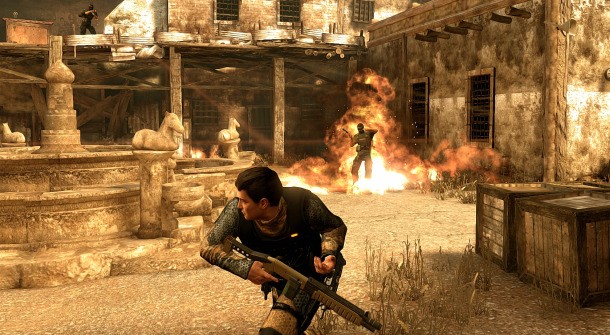
Down #1: Alpha Protocol
Alpha Protocol enticed players with an intriguing concept we can't believe hasn't
been tried before. A spy RPG sounded like the perfect mix of action and
strategy, and we were only more excited by Obsidian's promises: A branching
story based on split-second decisions; the ability to shape your character into
a suave James Bond, a ruthless Jack Bauer, or a stealthy but lethal Jason
Bourne; a comprehensive leveling system that rivals the best RPGs, but action
more in line with Mass Effect or Splinter Cell. What could possibly go wrong?
As it turns out, pretty much everything. No matter what decisions you make during the game, the subpar voice acting of your character makes him always seem like an asshat. Alpha Protocol's dynamic world turned out to be a series of rudimentary levels largely void of characters or interactive elements. The weapon customization and leveling system showed promise, but rough gameplay mechanics and balance issues negated these elements - what good is a deep RPG system if the game isn't fun to play? A new idea always takes time to perfect, but Alpha Protocol performed too poorly to be given a second chance: Sega shot down the possibility of a sequel just a month after the game was released.
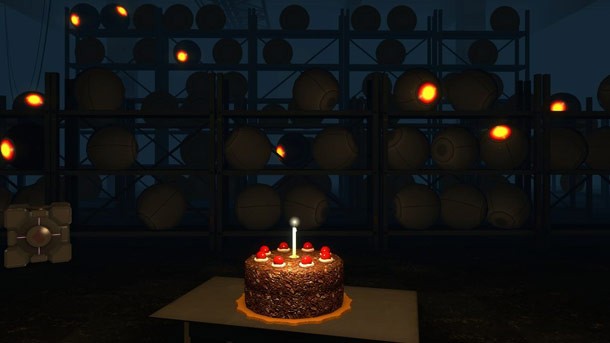
Up #1: Portal
If you underestimated the appeal of Portal, don't feel too bad -
Valve did too. Released as part of the Orange Box, Portal was vastly
overshadowed by the package's trilogy of Half-Life 2 games and Team Fortress 2.
That didn't stop Portal from becoming an instant hit with gamers, who fell in
love with its mind-bending puzzles and razor sharp writing. Portal was a fresh
new take on the puzzle genre, and proved that a first-person game doesn't need
an over the top arsenal or nonstop action to be engaging. In addition to
winning countless awards for game design, Portal has become a peculiar favorite
for co-op gaming, despite being a single player game. If the Internet's
affection for the Weighted Companion Cube and "The cake is a lie" meme isn't
enough to convince you of Portal's popularity, the mounting hype for its
standalone, triple-A sequel should. Not bad for a game that came out of
nowhere.


